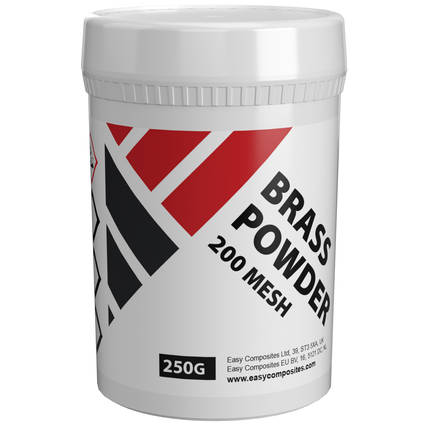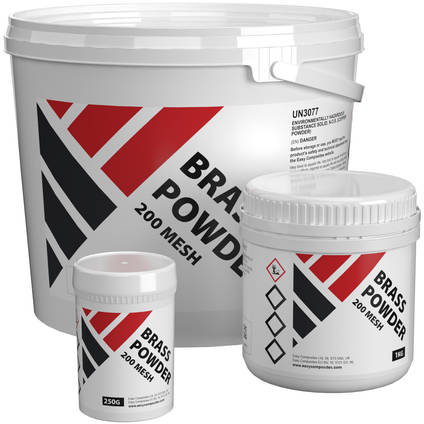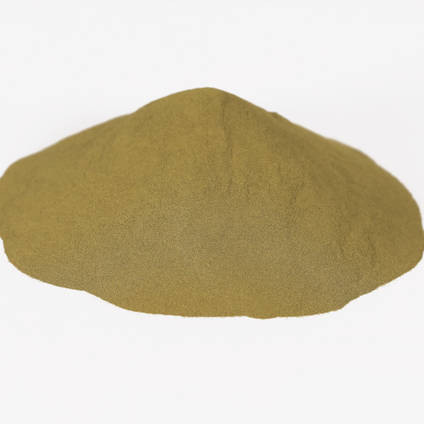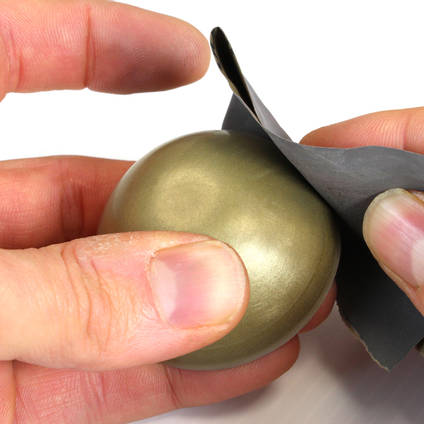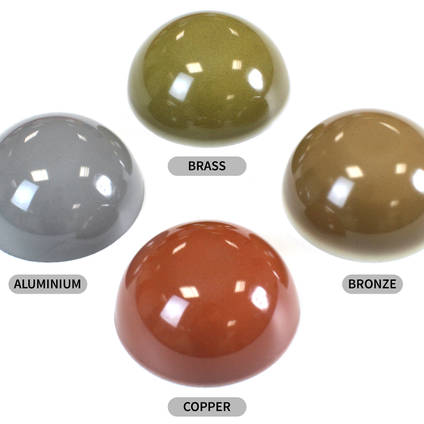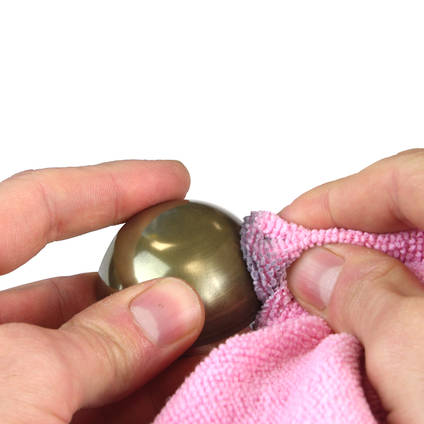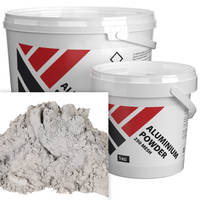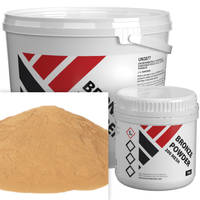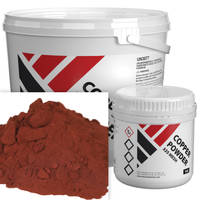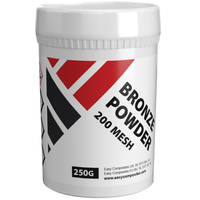Need any help or advice?+44 (0)1782 454499
Specification
Product Data
| Colour | Gold | |
|---|---|---|
| Format | Powder | |
| Zinc | 30 | % |
| Particle Size | 200 | Mesh |
Compatible With
| Compatible With | Epoxy | Yes |
|---|---|---|
| Compatible With | Polyurethane | Yes |
| Compatible With | Polyester | Yes |
| Compatible With | Vinylester | Yes |
Weight and Dimensions
| Copper | 70 | % |
|---|
General Properties
| Gross Weight | 0.287 | kg |
|---|
Shipping Information
Restrictions
This product is not classed as dangerous goods for transport and can be shipped to all destinations without restriction.
Package Size
There are no package size restrictions or surcharges for this product.
Delivery Cost
To find the delivery cost of this item to your address, add it to your basket and then use the instant shipping calculator on the basket page.
Brass Metal Powder
- FP-BRS-025
- No reviews
Highly pure, very fine 200 mesh irregular brass metal powder suitable for a range of applications including resin-casting (cold casting), decorative coatings and powder metallurgy.
Our brass powder is available to buy online in 250g, 1kg and 5kg packs.
PRODUCT VERSIONS
Pack Size
AVAILABILITY:5 in stock available for immediate shipping
We won’t be beaten on price!
If you believe you’re buying an equivalent product cheaper elsewhere, contact us to discuss your requirements.
Very fine (200 mesh), highly pure 70/30 brass powder suitable for a range of applications including resin-casting, decorative coatings and powder metallurgy.
How to Buy
Our brass powder is sold in 250g, 1kg and 5kg pack sizes. Please choose the pack size you require from the drop-down list at the top of the page.
25kg packs are available on request; please contact us for pricing.
Further Information
Use In Cold-Casting / Resin Casting
Add brass powder to castings resins such as polyurethane Fast-Cast resins, polyesters or epoxies for an authentic metallic brass appearance and feel.
Added to the whole of the resin mix, brass powder will increase the density of a casting (making it feel heavier) as well as its thermal conductivity (making it feel colder). Alternatively, it can be added in higher ratios to only a thin surface layer by slush-casting or rotational-moulding, giving a very metallic surface to a casting that can then be back-filled with unfilled resin.
Mix Ratios
A ratio of at least 50% brass powder (by weight) would be required to result in a significantly metallic appearance. Higher ratios, up to the limit of pourability, will yield a more impressive metallic appearance and feel.
When adding metallic powders to polyester or vinylester resin systems it is important to catalyse the resin prior to adding the metal powder so as to avoid any adverse reaction (rapid oxidisation) of the metal powder by the catalyst.
Such oxidisation or other adverse reactions are unlikely to occur with polyurethane or epoxy resins but it may still be a good idea to mix the resin and hardeners together before adding the metal powder.
Revealing the Appearance
After casting, the metallic appearance will not be clear or vivid because the metal particles will be obscured behind a thin layer of resin. To reveal the metallic appearance, the casting can be rubbed with an abrasive pad or wire-wool.
Patinating (Rusting)
After exposing brass particles on the surface of a casting, the brass on the surface will patina (rust) in the same way that a conventional brass product would which means that it will quickly take on the distinctive dull turquoise colour of patinated brass.
Very fine (200 mesh), highly pure 70/30 brass powder suitable for a range of applications including resin-casting, decorative coatings and powder metallurgy.
How to Buy
Our brass powder is sold in 250g, 1kg and 5kg pack sizes. Please choose the pack size you require from the drop-down list at the top of the page.
25kg packs are available on request; please contact us for pricing.
Further Information
Use In Cold-Casting / Resin Casting
Add brass powder to castings resins such as polyurethane Fast-Cast resins, polyesters or epoxies for an authentic metallic brass appearance and feel.
Added to the whole of the resin mix, brass powder will increase the density of a casting (making it feel heavier) as well as its thermal conductivity (making it feel colder). Alternatively, it can be added in higher ratios to only a thin surface layer by slush-casting or rotational-moulding, giving a very metallic surface to a casting that can then be back-filled with unfilled resin.
Mix Ratios
A ratio of at least 50% brass powder (by weight) would be required to result in a significantly metallic appearance. Higher ratios, up to the limit of pourability, will yield a more impressive metallic appearance and feel.
When adding metallic powders to polyester or vinylester resin systems it is important to catalyse the resin prior to adding the metal powder so as to avoid any adverse reaction (rapid oxidisation) of the metal powder by the catalyst.
Such oxidisation or other adverse reactions are unlikely to occur with polyurethane or epoxy resins but it may still be a good idea to mix the resin and hardeners together before adding the metal powder.
Revealing the Appearance
After casting, the metallic appearance will not be clear or vivid because the metal particles will be obscured behind a thin layer of resin. To reveal the metallic appearance, the casting can be rubbed with an abrasive pad or wire-wool.
Patinating (Rusting)
After exposing brass particles on the surface of a casting, the brass on the surface will patina (rust) in the same way that a conventional brass product would which means that it will quickly take on the distinctive dull turquoise colour of patinated brass.
Specification
Product Data
| Colour | Gold | |
|---|---|---|
| Format | Powder | |
| Zinc | 30 | % |
| Particle Size | 200 | Mesh |
Compatible With
| Compatible With | Epoxy | Yes |
|---|---|---|
| Compatible With | Polyurethane | Yes |
| Compatible With | Polyester | Yes |
| Compatible With | Vinylester | Yes |
Weight and Dimensions
| Copper | 70 | % |
|---|
General Properties
| Gross Weight | 0.287 | kg |
|---|
Metal powders, contrary to expectations are poor conductors. Firstly, in a metal powder a significant proportion of the material is air. You have a lot of particles which you would expect to be touching each other, which they are, but the point of contact is possibly only a fraction of the surface of each particle (whether it’s spherical or irregular) so you have lots of contact points, but they are quite small, and what you actually have is a lot of gaps, so you have only a fraction of the metallic “continuity” (I couldn’t think of a better word) through the sample that you would expect. Secondly with all metal powders there is a tiny layer of oxide on the surface of each particle, as you would have on the surface of a solid metal, this will give a small amount of resistance on say a solid piece of metal, but multiply that by the thousands/millions of particles in the sample and this resistance becomes significant, building to the point where the metal apparently doesn’t conduct. In reality it does, but not much. There is usually enough conductivity for, say, antistatic properties, but that’s about it. I would think that in a resin, you probably lower the conductivity even more as you will start blocking some of the already tiny contact points. There are metal powders produced for conductivity applications, such as silver coated coppers or even silver or gold may be used (higher conductivity and less oxidation), but as you can imagine they become very expensive.
In theory, I cannot see any reason why this would not be possible although whether or not you would achieve the effect you're looking for is hard to say. With an unusual application like this it would be important to undertake your own tests to ascertain the suitability and compatibility.
ASK YOUR OWN QUESTION
Customer Product Reviews for Brass Metal Powder
SUBMIT YOUR OWN PRODUCT REVIEW
We publish all reviews for verified purchases. Submit your own review and help other customers with their choices.SUBMIT YOUR OWN PRODUCT REVIEW
We publish all reviews for verified purchases. Submit your own review and help other customers with their choices.Shipping Information
Restrictions
This product is not classed as dangerous goods for transport and can be shipped to all destinations without restriction.
Package Size
There are no package size restrictions or surcharges for this product.
Delivery Cost
To find the delivery cost of this item to your address, add it to your basket and then use the instant shipping calculator on the basket page.
RELATED PRODUCTS
CUSTOMERS ALSO PURCHASED
RELATED PRODUCTS
CUSTOMERS ALSO PURCHASED
100% SECURE
PAYMENT METHODS
Easy Composites EU B.V., registered in the Netherlands 73601195. All content copyright (C) Easy Composites Ltd, 2025. All rights reserved.
